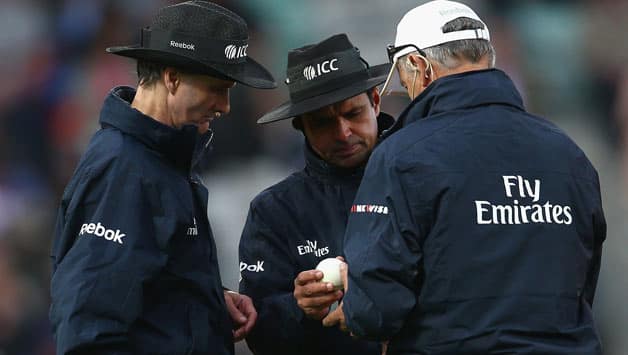
Cricket Country Staff
Editorial team of CricketCountry.
Written by Cricket Country Staff
Published: Oct 09, 2013, 10:38 AM (IST)
Edited: Oct 09, 2013, 10:38 AM (IST)


In last month’s meeting, ICC had failed to pass any resolution to make it a rule. BCCI is likely to send a letter to ICC stating how can the international body make a defeated motion a rule © Getty Images
Oct 9, 2013
The experimental rule of having two new balls in One-Day Internationals (ODIs) is likely to be done away with at International Cricket Council’s (ICC) year-end meeting.
In last month’s meeting, ICC had failed to pass any resolution to make it a rule. The motion was supported by only England, Australia and New Zealand. However, the Board of Control for Cricket in India (BCCI), along with Pakistan, Sri Lanka, Bangladesh and Zimbabwe, voted against it. Furthermore, West Indies and South Africa decided to not vote at all.
As a result, the Indian board is likely to send a letter to ICC, asking explanation on how a defeated motion can be made into a rule, according to Times of India.
Presently, two new balls are used which has been creating problems for sub-continent spinners.
According to ICC’s Chief Executive Committee (CEC) terms any resolution needs “two-thirds of the aggregate number of votes exercisable by the full member committee” to be passed.
Sources inside the Indian board ruled out any more chances of voting as the motion has already been defeated.
“The board representatives will talk to the countries like Australia, New Zealand and England to give the rule a burial,” a source said on Tuesday.
This website uses cookies so that we can provide you with the best user experience possible. Cookie information is stored in your browser and performs functions such as recognising you when you return to our website and helping our team to understand which sections of the website you find most interesting and useful.
Strictly Necessary Cookie should be enabled at all times so that we can save your preferences for cookie settings.
If you disable this cookie, we will not be able to save your preferences. This means that every time you visit this website you will need to enable or disable cookies again.
